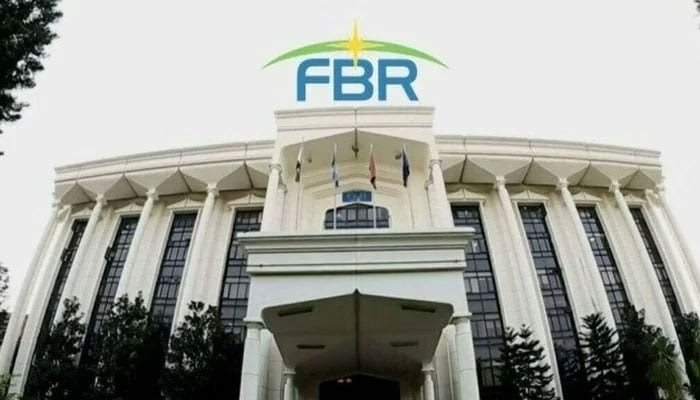The Federal Board of Revenue (FBR) has announced a major step toward strengthening its tax enforcement mechanism by enhancing FBR audit capacity. To achieve this, around 1,600 new auditors will be recruited across the country. This decision is part of a broader transformation plan aimed at increasing transparency, improving compliance, and raising Pakistan’s tax-to-GDP ratio.
Why FBR Audit Capacity Matters
Audit is one of the most effective tools to ensure compliance in any tax system. By improving FBR audit capacity, the board aims to create a culture of accountability among taxpayers while minimizing loopholes that contribute to revenue loss. Stronger auditing practices will not only help detect tax evasion but also build public confidence in the fairness of the system.
According to official reports, FBR’s transformation strategy has already increased the tax-to-GDP ratio from 8.8 percent to 10.24 percent. This improvement reflects the effectiveness of reforms and highlights the importance of expanding auditing resources.
AI-Based Risk Parameters for Taxpayer Selection
One of the significant advancements in expanding FBR audit capacity is the use of artificial intelligence (AI). Taxpayers selected for audit will now be chosen based on AI-driven risk parameters rather than manual selection. This digital transformation reduces the chances of bias and ensures that only high-risk cases are targeted.
AI-based systems can analyze large datasets from multiple sectors, including sugar, cement, tobacco, fertilizer, beverages, and textiles, where digital production monitoring has already been introduced. By integrating technology, the FBR is moving toward a fairer, more efficient auditing process.
Recruitment of 1,600 Auditors: A Game Changer
Recruiting 1,600 auditors is expected to significantly increase FBR audit capacity, providing the manpower required to conduct more comprehensive and timely audits. With additional staff, the FBR will be able to expand coverage across industries and geographic locations, reducing tax evasion opportunities.
The chairman of the FBR emphasized that this recruitment drive is part of a long-term vision to strengthen institutional capacity while ensuring taxpayer facilitation. The board aims to strike a balance between enforcement and convenience, assuring taxpayers that audits will be carried out fairly and transparently.
Revenue Growth Through Reforms
The recent reforms introduced by the FBR have already begun to show results. In July alone, FBR collected more revenue than its target, reflecting the impact of stricter enforcement and digitalization.
Key highlights include:
- A 17.3% increase in per-goods declaration revenues due to faceless customs appraisal.
- An 8-fold increase in enforcement-related revenues compared to last year.
These achievements underline the importance of enhancing FBR audit capacity further to sustain revenue growth and reduce dependency on external borrowing.
Taxpayer Facilitation Alongside Enforcement
While enforcement remains a critical focus, the FBR also acknowledges the importance of taxpayer convenience. To address this, a facilitation division has been established at LTO Karachi, aimed at improving communication and support for taxpayers.
The chairman of FBR has repeatedly emphasized that reforms are not only about penalties or strict actions but also about creating a taxpayer-friendly environment. By combining stronger FBR audit capacity with facilitation, the board seeks to encourage voluntary compliance, which is essential for long-term sustainability.
Broader Impact on Pakistan’s Economy
Improving FBR audit capacity has implications beyond tax collection. Stronger audits will contribute to better governance, increased investor confidence, and a more transparent business environment. When companies and individuals know that audits are fair, consistent, and technology-driven, compliance improves naturally.
Additionally, the increase in revenue through audits and enforcement allows the government to allocate more resources to development projects, social welfare, and infrastructure, directly benefiting citizens.
Challenges in Expanding Audit Capacity
Despite the positive steps, challenges remain in strengthening FBR audit capacity. Recruiting and training 1,600 auditors will require significant investment in both human resources and technology. Ensuring that auditors work with integrity and independence will also be crucial to maintaining public trust.
Furthermore, as audits expand, businesses may initially express concerns about over-regulation or delays. To address these issues, FBR must ensure that audits are efficient, transparent, and balanced with taxpayer facilitation.
The recruitment of 1,600 auditors is a landmark step in strengthening FBR audit capacity and modernizing Pakistan’s tax system. Coupled with AI-based risk assessment, digital production monitoring, and taxpayer facilitation, these reforms reflect a balanced approach to enforcement and convenience.
The recent increase in the tax-to-GDP ratio and higher revenue collection already demonstrate the effectiveness of FBR’s transformation plan. By expanding audit capacity, the government not only secures much-needed revenue but also builds a fairer, more transparent taxation system for Pakistan’s future.
As reforms continue, the success of this initiative will largely depend on how effectively the FBR integrates technology, recruits skilled professionals, and maintains the delicate balance between enforcement and taxpayer trust.



